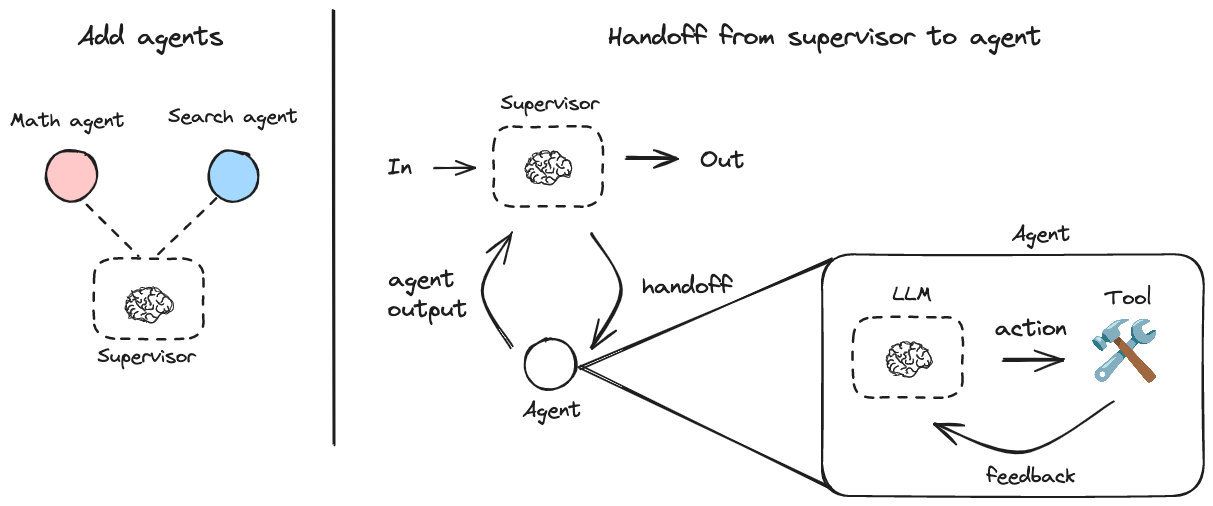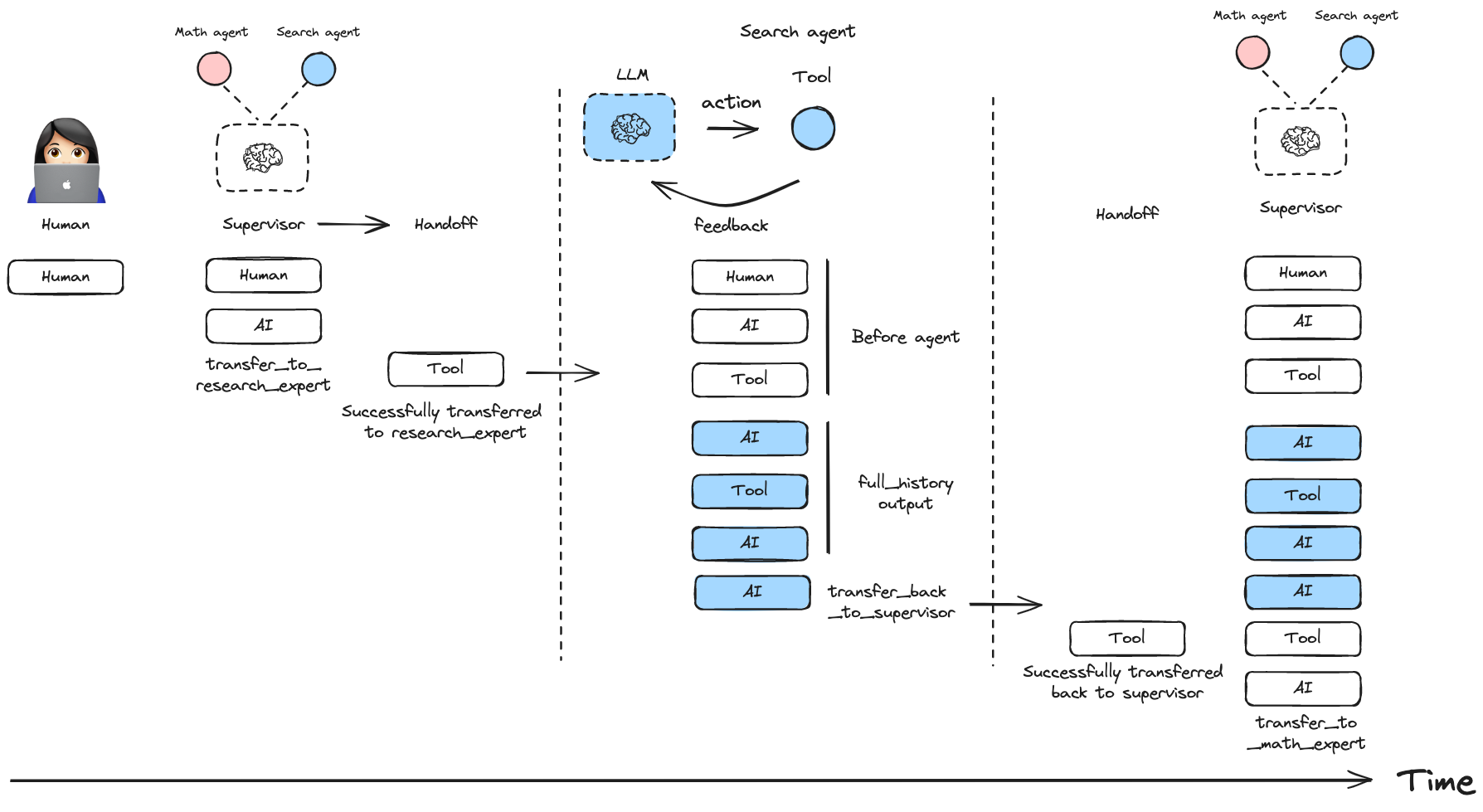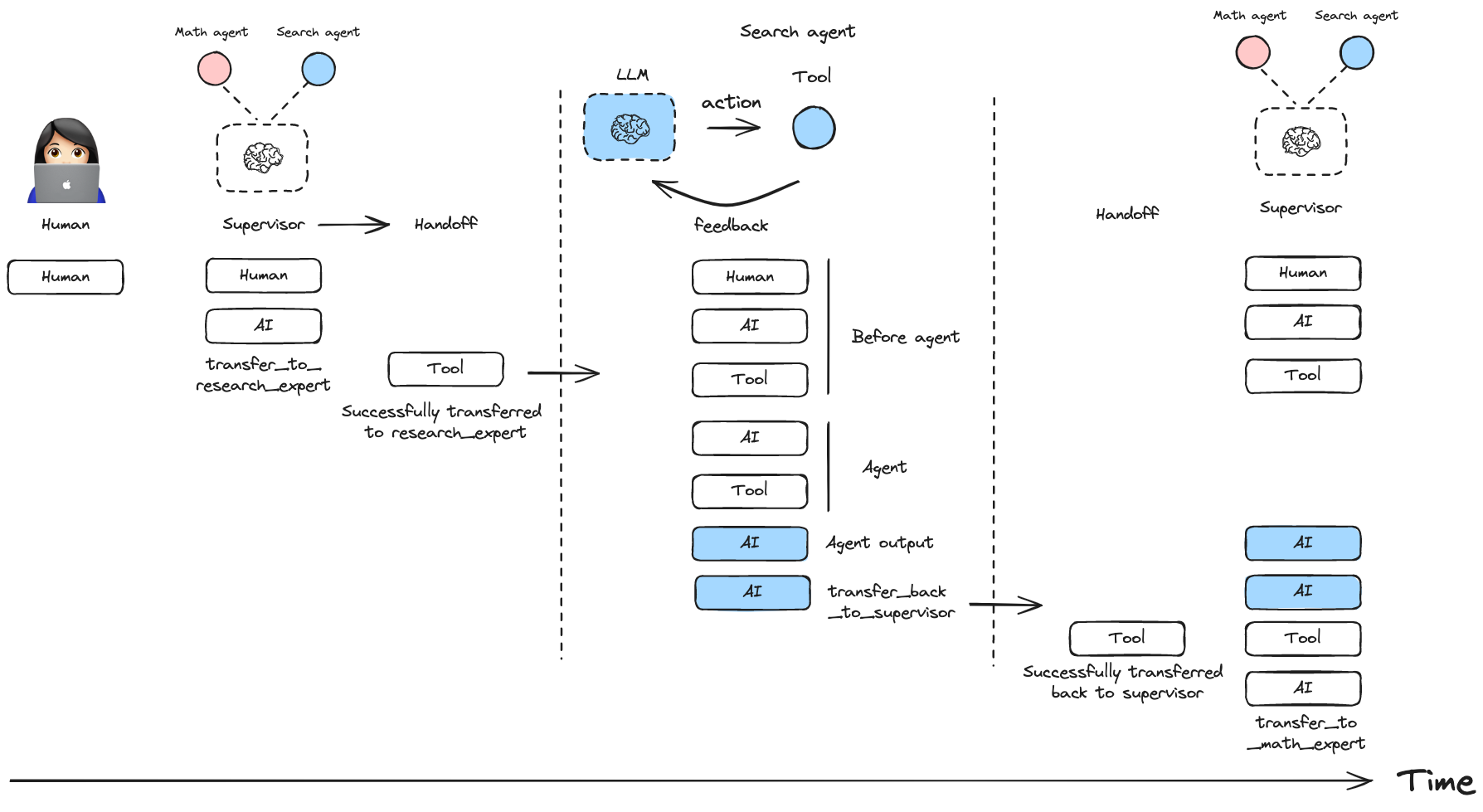Module @langchain/langgraph-supervisor - v1.0.1
🤖 LangGraph Multi-Agent Supervisor
A JavaScript library for creating hierarchical multi-agent systems using LangGraph. Hierarchical systems are a type of multi-agent architecture where specialized agents are coordinated by a central supervisor agent. The supervisor controls all communication flow and task delegation, making decisions about which agent to invoke based on the current context and task requirements.
Features
- 🤖 Create a supervisor agent to orchestrate multiple specialized agents
- 🛠️ Tool-based agent handoff mechanism for communication between agents
- 📝 Flexible message history management for conversation control
This library is built on top of LangGraph, a powerful framework for building agent applications, and comes with out-of-box support for streaming, short-term and long-term memory and human-in-the-loop
Installation
npm install @langchain/langgraph-supervisor @langchain/langgraph @langchain/core
Quickstart
Here's a simple example of a supervisor managing two specialized agents:

npm install @langchain/langgraph-supervisor @langchain/langgraph @langchain/core @langchain/openai
export OPENAI_API_KEY=<your_api_key>
import { ChatOpenAI } from "@langchain/openai";
import { createSupervisor } from "@langchain/langgraph-supervisor";
import { createReactAgent } from "@langchain/langgraph/prebuilt";
import { tool } from "@langchain/core/tools";
import { z } from "zod";
const model = new ChatOpenAI({ modelName: "gpt-4o" });
// Create specialized agents
const add = tool(
async (args) => args.a + args.b,
{
name: "add",
description: "Add two numbers.",
schema: z.object({
a: z.number(),
b: z.number()
})
}
);
const multiply = tool(
async (args) => args.a * args.b,
{
name: "multiply",
description: "Multiply two numbers.",
schema: z.object({
a: z.number(),
b: z.number()
})
}
);
const webSearch = tool(
async (args) => {
return (
"Here are the headcounts for each of the FAANG companies in 2024:\n" +
"1. **Facebook (Meta)**: 67,317 employees.\n" +
"2. **Apple**: 164,000 employees.\n" +
"3. **Amazon**: 1,551,000 employees.\n" +
"4. **Netflix**: 14,000 employees.\n" +
"5. **Google (Alphabet)**: 181,269 employees."
);
},
{
name: "web_search",
description: "Search the web for information.",
schema: z.object({
query: z.string()
})
}
);
const mathAgent = createReactAgent({
llm: model,
tools: [add, multiply],
name: "math_expert",
prompt: "You are a math expert. Always use one tool at a time."
});
const researchAgent = createReactAgent({
llm: model,
tools: [webSearch],
name: "research_expert",
prompt: "You are a world class researcher with access to web search. Do not do any math."
});
// Create supervisor workflow
const workflow = createSupervisor({
agents: [researchAgent, mathAgent],
llm: model,
prompt:
"You are a team supervisor managing a research expert and a math expert. " +
"For current events, use research_agent. " +
"For math problems, use math_agent."
});
// Compile and run
const app = workflow.compile();
const result = await app.invoke({
messages: [
{
role: "user",
content: "what's the combined headcount of the FAANG companies in 2024??"
}
]
});
Message History Management
You can control how agent messages are added to the overall conversation history of the multi-agent system:
Include full message history from an agent:

const workflow = createSupervisor({
agents: [agent1, agent2],
outputMode: "full_history"
})
Include only the final agent response:

const workflow = createSupervisor({
agents: [agent1, agent2],
outputMode: "last_message"
})
Multi-level Hierarchies
You can create multi-level hierarchical systems by creating a supervisor that manages multiple supervisors.
const researchTeam = createSupervisor({
agents: [researchAgent, mathAgent],
llm: model,
}).compile({ name: "research_team" })
const writingTeam = createSupervisor({
agents: [writingAgent, publishingAgent],
llm: model,
}).compile({ name: "writing_team" })
const topLevelSupervisor = createSupervisor({
agents: [researchTeam, writingTeam],
llm: model,
}).compile({ name: "top_level_supervisor" })
Adding Memory
You can add short-term and long-term memory to your supervisor multi-agent system. Since createSupervisor() returns an instance of StateGraph that needs to be compiled before use, you can directly pass a checkpointer or a store instance to the .compile() method:
import { MemorySaver, InMemoryStore } from "@langchain/langgraph";
const checkpointer = new MemorySaver()
const store = new InMemoryStore()
const model = ...
const researchAgent = ...
const mathAgent = ...
const workflow = createSupervisor({
agents: [researchAgent, mathAgent],
llm: model,
prompt: "You are a team supervisor managing a research expert and a math expert.",
})
// Compile with checkpointer/store
const app = workflow.compile({
checkpointer,
store
})
Type Aliases
Functions
References
- withAgentName → AgentNameMode